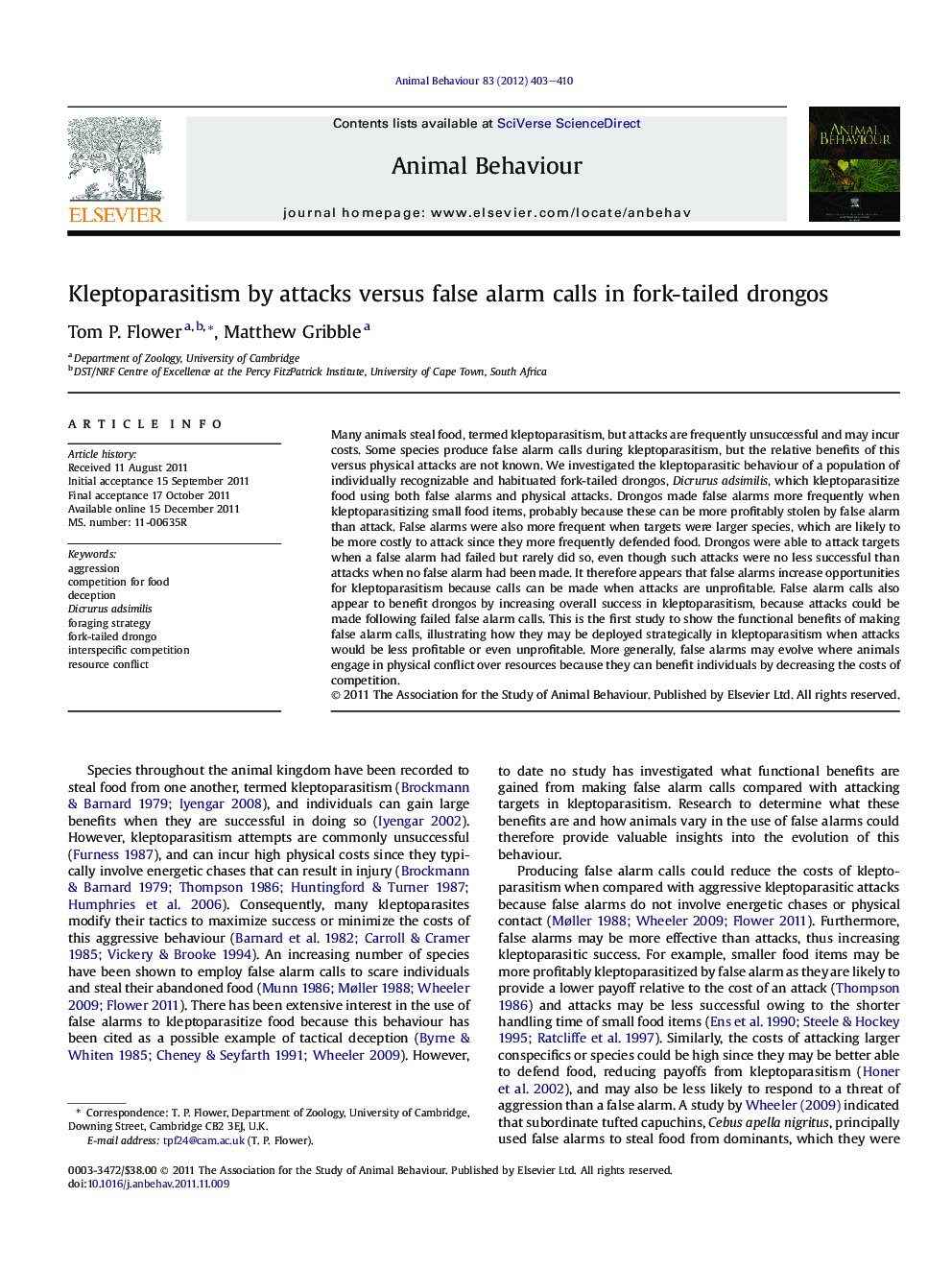| کد مقاله | کد نشریه | سال انتشار | مقاله انگلیسی | نسخه تمام متن |
|---|---|---|---|---|
| 2416717 | 1104293 | 2012 | 8 صفحه PDF | دانلود رایگان |

Many animals steal food, termed kleptoparasitism, but attacks are frequently unsuccessful and may incur costs. Some species produce false alarm calls during kleptoparasitism, but the relative benefits of this versus physical attacks are not known. We investigated the kleptoparasitic behaviour of a population of individually recognizable and habituated fork-tailed drongos, Dicrurus adsimilis, which kleptoparasitize food using both false alarms and physical attacks. Drongos made false alarms more frequently when kleptoparasitizing small food items, probably because these can be more profitably stolen by false alarm than attack. False alarms were also more frequent when targets were larger species, which are likely to be more costly to attack since they more frequently defended food. Drongos were able to attack targets when a false alarm had failed but rarely did so, even though such attacks were no less successful than attacks when no false alarm had been made. It therefore appears that false alarms increase opportunities for kleptoparasitism because calls can be made when attacks are unprofitable. False alarm calls also appear to benefit drongos by increasing overall success in kleptoparasitism, because attacks could be made following failed false alarm calls. This is the first study to show the functional benefits of making false alarm calls, illustrating how they may be deployed strategically in kleptoparasitism when attacks would be less profitable or even unprofitable. More generally, false alarms may evolve where animals engage in physical conflict over resources because they can benefit individuals by decreasing the costs of competition.
► We investigate the benefit of using false alarm calls to steal food.
► Study on fork-tailed drongos which steal food using attacks and false alarms.
► Made false alarms when attacks costly, increasing opportunities to steal food.
► Increased overall success as attacks could still be made when false alarms failed.
► Principle benefit of false alarms is that they reduce costs of conflict over food.
Journal: Animal Behaviour - Volume 83, Issue 2, February 2012, Pages 403–410